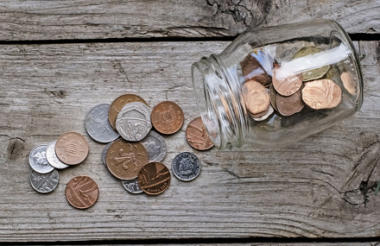Donations from the wealthiest should not be seen as a substitute for a fairer economic system, Oxfam has said.
In a new report published on Monday, Oxfam revealed that the fortunes of billionaires in the food and energy sectors have grown by $453bn in the past two years. This is the equivalent of more than $1bn every two days.
Oxfam estimated that there are now 2,668 billionaires around the world, which is 573 more than in 2020.
The report also found that the Covid-19 pandemic, rising global inequality and soaring food and energy prices could push 263 million people into extreme poverty this year.
Philanthropic giving is not enough
Although Oxfam has recognised that philanthropic giving plays an important role in tackling poverty, it said it is not a solution to ending poverty and fighting inequality.
An Oxfam spokesperson said: “Wealthy individuals who use their money to help others should be congratulated and Oxfam is grateful to everyone who donates to us. However, our world cannot rely on the charity and goodwill of the mega-rich as a substitute for a fairer economy to replace the broken system that is fuelling poverty and inequality.
“Charitable giving is no substitute for wealthy people and companies paying their fair share of tax and it cannot justify them using their power and connections to lobby for unfair advantages over others.”
In a previous report, Oxfam said that philanthropic contributions “pale in comparison to corporate profits and billionaires’ wealth – and the potential good a fairer tax system or more inclusive economy would garner”.
In 2017, the US lost an estimated $135bn in revenue because of corporate tax dodging. According to Oxfam, corporate philanthropy amounted to less than $20bn per year.
Tax the rich
Oxfam called on government to introduce taxation measures, including a permanent wealth tax and a one-off Covid-19 windfall tax on the wealthiest, which in turn should be used to help fight inequality.
The spokesperson said: “The scale of poverty and humanitarian need around the world is a huge challenge to all of us who work with the poorest and most vulnerable communities around the world.
“Tackling the root causes of inequality is vital if we are to improve the lives of hundreds of millions of people living in extreme poverty. That’s why we’re calling on governments to introduce one-time ‘solidarity taxes’ and longer-term wealth taxes, which would raise huge amounts of money to both address rising poverty and reduce inequalities.”
Danny Sriskandarajah, chief executive of Oxfam GB, said: “At a time when hundreds of millions more people are facing extreme poverty, there can be no excuse for governments not to address gargantuan profits and wealth in order to ensure that no one is left behind.
“Introducing wealth taxes, for example, would raise huge sums that could help vulnerable groups to survive this crisis and build a better future. Here in the UK, a windfall tax on energy companies would be a strong place to start to help all those who are struggling to eat and heat their homes.”
Related articles












